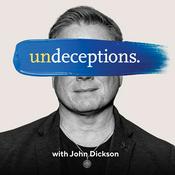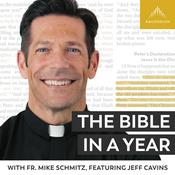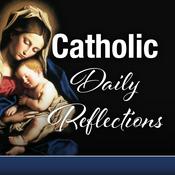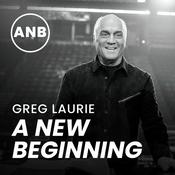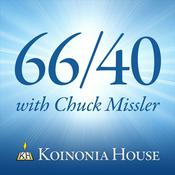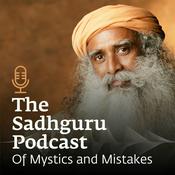349 episodes
- In this episode, I'm looking at Saturn-Neptune conjunctions in birth charts and sharing some preliminary research I've been doing recently about how this placement shows up in people's lives. With the Saturn-Neptune conjunction finally going exact in the sky right now on February 20, 2026, I wanted to shift our focus from mundane world events to how this alignment manifests on a personal level, especially by looking at the lives of notable individuals and celebrities.
I explore a variety of fascinating manifestations, from what I've been calling the "reality distortion field," to themes of mysteries, hidden secrets coming to light, and the tension between belief and skepticism. I also spend a lot of time talking about "recurrence transits", where people born under a previous Saturn-Neptune conjunction experience major, defining turning points in their lives when the two planets align again years later.
Since this is ongoing research, I want to hear from you. If you have a Saturn-Neptune conjunction in your own birth chart, or if you know of any other great celebrity examples I might have missed, please let me know down in the comments. If we get enough good examples, I'm planning to do a follow-up episode to explore this topic even further.
This is episode 525 of The Astrology Podcast.
Timestamps
00:00:00 Introduction00:02:10 Betty Ford00:05:44 JonBenét Ramsey00:08:38 John F. Kennedy00:09:48 Jeffrey Epstein00:11:12 Boston Tea Party00:12:18 Gisèle Pelicot00:17:11 Vladimir Putin00:19:44 Christopher Columbus00:25:08 Heinrich Cornelius Agrippa00:26:26 Charles Darwin00:28:56 Taylor Swift & Travis Kelce00:30:08 Kathleen Kennedy00:34:47 Stephen Paddock00:37:06 Ayurvedic Medicine Ashram Example00:39:34 Mercury Cafe in Denver00:41:49 Haley Joel Osment00:43:29 Ken Burns00:48:10 Edgar Allan Poe00:49:05 Discovery of Neptune00:49:46 Proclus00:51:11 Pierce Brosnan00:52:47 Elvira, Mistress of the Dark00:55:13 Alexander Graham Bell00:56:30 Gwendolyn Brooks00:57:19 Pablo Picasso00:58:51 Daniel Radcliffe01:01:05 Fall of Empires: King Fuad II & Gamal Abdel Nasser01:03:45 King George III & the American Revolution01:06:26 Conclusion01:08:54 Patreon & Sponsors
Watch the Video Version of This Episode
https://www.youtube.com/watch?v=j_3rNcEZKVs
Listen to the Audio Version of This Episode
Listen to the audio version of this episode or download it as an MP3: - In ancient astrology, eclipses were viewed as omens of the death or downfall of prominent people. In this episode, I want to go over some examples from recent history and current news that demonstrate that this ancient observation is still true to this day.
I recorded this on February 19, 2026, right as the big news hit that Prince Andrew was just arrested in connection with the Jeffrey Epstein files, which happened only two days after a solar eclipse in Aquarius.
We'll dive into what I define as "eclipse season," a roughly month-long period that starts about a week before the first eclipse and ends about a week after the second eclipse. During this time, it is incredibly common to see prominent or political figures suffering some sort of public downfall.
We are going to walk through several recent examples of this, from the arrest of Jeffrey Epstein in 2019, to the collapse of Sam Bankman-Fried's crypto company FTX, to the raid on Sean "Diddy" Combs' mansions. We will also look at how this applies to major historical events, including the deaths of Princess Diana and Pope John Paul I, as well as the assassination of Abraham Lincoln.
But as we'll discuss, a downfall is not always permanent. Because an eclipse is a conjunction, it represents the closing of one cycle, but also the laying of the seeds or foundations for something completely new to grow.
Since our current eclipse season is not over yet, I highly recommend paying attention to the new beginnings taking root in your own life right now, even if they do not seem that momentous yet.
Timestamps
00:00:00 Introduction to Eclipses and Downfalls00:00:27 Prince Andrew's Arrest00:01:36 Why the Sun and Moon Represent Leaders00:03:08 Prominent Deaths: Jesse Jackson00:05:47 The Origins of Eclipse Omens00:06:41 Prince Andrew's Birth Chart00:07:47 South Korean President Sentenced00:08:44 Defining the "Eclipse Season" Window00:10:56 Liz Truss Resigns00:11:35 Eric Adams Indicted00:13:00 Jeffrey Epstein Arrested00:14:18 Kanye West loses Adidas partnership00:16:06 Sam Bankman-Fried and FTX Collapse00:18:37 Sean "Diddy" Combs House Raided00:19:37 R. Kelly Arrested00:20:44 The Flip Side: Sudden Rises to Prominence00:22:07 Ashlee Simpson's SNL Lip Syncing Fiasco00:23:35 News Anchors Fired: Cuomo, Lemon, and Carlson00:25:56 Temporary Setbacks: James Gunn00:27:59 Trump's First Impeachment00:29:13 Deaths of Three British Kings00:31:41 Princess Diana's Tragic Death00:32:07 Assassinations: Lincoln, MLK, and Indira Gandhi00:32:38 Death of Pope John Paul I00:34:17 King Henry I's Eclipse00:36:05 Why Eclipses Trigger Major Endings00:38:34 The rest of the current eclipse season00:40:56 Credits
Watch the Video Version of This Episode
https://www.youtube.com/watch?v=MFdPdsFJFpI
-
Listen to the Audio Version of This Episode
Listen to the audio version of this episode or download it as an MP3: - In episode 523 astrologer Ashley Otero joins me to discuss the astrological significance of Bad Bunny’s recent Super Bowl halftime show and its deep connection to the history of Puerto Rico, focusing in particular on Saturn-Neptune conjunctions.
We demonstrate how the performance aligns with a powerful series of Saturn-Neptune conjunctions that have coincided with pivotal moments in the island's past, including the granting of US citizenship in 1917, the ratification of the Constitution in 1952, and the formal request for self-determination in 1989.
Through this lens, we analyze the archetype of the Saturn-Neptune cycle, symbolizing the dissolution of boundaries and structural ambiguity, to understand Puerto Rico's complex political status and the cultural resurgence taking center stage today.
This eventually leads to a discovery about how the Saturn-Neptune conjunction signature is relevant to the broader Spanish speaking world of the Americas in general.
This is part of an ongoing series where I keep noticing how the Saturn-Neptune conjunction is showing up in notable and surprising ways through current events in the news, and by looking into the history we can better understand the archetype of what that planetary alignment is all about.
Ashley's Website
https://www.cosmicsoupbowl.com
https://www.instagram.com/Heavenandearthsomatics
Timestamps
00:00:00 Introduction00:01:25 The Saturn-Neptune Conjunction of 202600:02:43 Bad Bunny's Super Bowl Performance00:04:08 Bad Bunny's Natal Chart & Saturn Return00:08:49 The 2023 Grammy Loss to Harry Styles00:10:15 American Citizens00:11:15 Saturn-Neptune in Puerto Rican History00:15:00 Saturn-Neptune Themes: Ambiguity, Borders, and Status00:21:10 Bad Bunny’s Political Views on Statehood vs. Independence00:24:00 Hurricane Maria (2017) and Infrastructure Imagery00:27:00 Hurricane Hugo (1989) & The Saturn-Neptune Conjunction00:29:40 "Una Velita" and The Trauma of September00:34:00 The 1738 Hurricane00:36:40 Christopher Columbus & The 1486 Conjunction00:40:30 Columbus's Birth Chart (Saturn-Neptune Conjunction)00:49:10 Venezuela's Independence (1811)00:52:40 Sugar Cane Plantation Imagery00:57:00 Language Barriers and Fear of the Unknown01:03:00 La Fortaleza (1523) & San Juan Walls (1630)01:04:20 The 1809 Supreme Central Junta Decree01:08:50 How Art Influences Politics01:12:40 The Cuban Revolution (1953)01:14:38 Recurrence Transits for Venezuela & US01:16:49 Concluding Remarks
Watch the Video Version of This Episode
https://www.youtube.com/watch?v=DFZeHqOgVxw
–
Transcript
A full transcript of this episode is available: Episode 523 transcript
Listen to the Audio Version of This Episode
Listen to the audio version of this episode or download it as an MP3: - Saturn-Neptune conjunctions have historically coincided with themes involving conspiracies, secret organizations, covert operations, and the exposure or suppression of secretive groups.
As this conjunction goes exact again in February of 2026, I wanted to reflect on how some of these themes have been coming up again quite dramatically, and how history is repeating.
This is episode 522 of The Astrology Podcast.
Timestamps
00:00:00 - Introduction00:01:27 - The Zodiac Club & J.P. Morgan00:03:30 - The Epistemic Crisis00:06:29 - Secret Societies and Their Suppression00:10:56 - Secret Pacts and Diplomatic Conspiracies00:14:30 - Covert Operations, Intelligence, and Hidden Forces00:16:39 - Paranoia, Witch Hunts, and "The Enemy Within"00:21:11 - Plots and Poisonings00:22:36 - The Exposure of Secret Files00:23:14 - Conclusion
Watch the Video Version of This Episode
https://www.youtube.com/watch?v=ebKXlwnqF9g
-
Transcript
A full transcript of this episode is available: Episode 522 transcript
Listen to the Audio Version of This Episode
Listen to the audio version of this episode or download it as an MP3: - A look ahead at the astrological forecast for February 2026, with astrologers Chris Brennan and Austin Coppock.
We spend the first hour talking about the astrology surrounding news stories that happened in January, many of which coincided with a rare triple conjunction of Venus, Mars, and the Sun, as well as the Mars-Pluto conjunction that happened later in the month. Then in the second hour we do a deep dive into the astrology of February.
The astrology of February is extremely busy and momentous, and includes Uranus making its final direct station in Taurus, eclipse season beginning with a solar eclipse in Aquarius, Saturn entering Aries and then immediately completing a conjunction with Neptune, Mars squaring Uranus, and Mercury going retrograde in Pisces.
This is episode 521 of The Astrology Podcast.
Austin’s Website
https://Austincoppock.com
2026 Electional Astrology Report
https://theastrologypodcast.com/2026report/
2026 Astrology Calendar Posters
https://theastrologypodcast.com/2026-astrology-calendar-posters
Patreon for Bonus Content
https://www.patreon.com/astrologypodcast
Timestamps
00:00:00 Introduction00:00:38 February astrology quick overview00:02:37 News segment begins00:07:14 Venezuela and Maduro00:14:42 Greenland and NATO00:28:20 Epstein00:38:39 Minnesota00:53:06 Iran01:03:07 Wrapping up news segment01:05:06 Forecast for February begins01:08:18 Full Moon in Leo Feb 101:13:10 Uranus Final Taurus Station Feb 301:30:50 Mercury enters Pisces Feb 601:31:40 Venus-Uranus square Feb 801:33:20 Eclipse season begins Feb 901:41:13 Electional chart for February01:44:39 Venus enters Pisces Feb 1001:48:40 Mercury enters shadow Feb 1101:50:33 Saturn enters Aries Feb 1302:10:25 Saturn-Neptune conjunction exact02:30:59 Solar eclipse in Aquarius Feb 1702:39:15 Venus-Jupiter trine Feb 2202:40:00 Mercury stations retrograde Feb 2602:43:18 Mars-Uranus square Feb 2702:46:01 Mercury-Venus conjunction Feb 2802:47:04 March cliffhanger02:48:16 Wrapping up02:52:35 Credits
Watch the Video Version of This Episode
https://www.youtube.com/watch?v=e-LaduWvqnw
-
Transcript
A full transcript of this episode is available: Episode 521 transcript
Listen to the Audio Version of This Episode
Listen to the audio version of this episode or download it as an MP3:
More Religion & Spirituality podcasts
Trending Religion & Spirituality podcasts
About The Astrology Podcast
A weekly podcast on the history, philosophy, and techniques of astrology, hosted by professional astrologer Chris Brennan.
Podcast websiteListen to The Astrology Podcast, The David Ghiyam Podcast and many other podcasts from around the world with the radio.net app
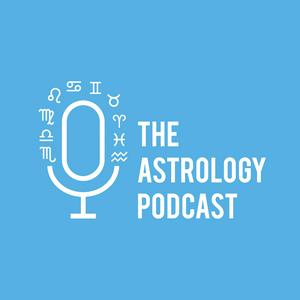
Get the free radio.net app
- Stations and podcasts to bookmark
- Stream via Wi-Fi or Bluetooth
- Supports Carplay & Android Auto
- Many other app features
Get the free radio.net app
- Stations and podcasts to bookmark
- Stream via Wi-Fi or Bluetooth
- Supports Carplay & Android Auto
- Many other app features


The Astrology Podcast
Scan code,
download the app,
start listening.
download the app,
start listening.



